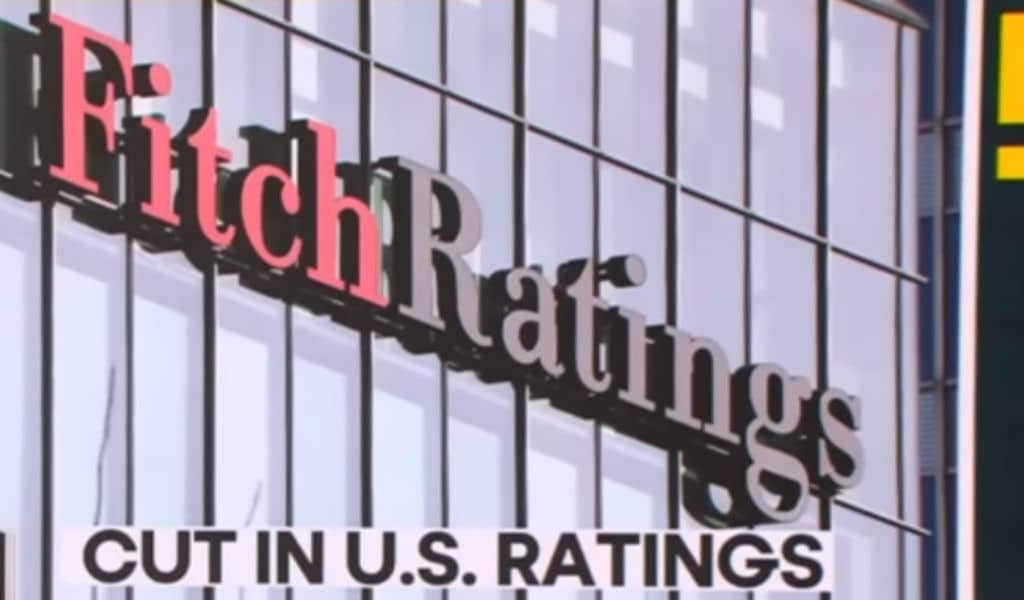The creditworthiness of the United States has taken a hit, with one of the three major credit rating agencies, Fitch, downgrading the country’s credit rating from AAA to AA+. This decision is rooted in concerns over the nation’s financial state and growing debt burden.
Fitch explained that the downgrade reflects a “steady deterioration” in governance, particularly related to fiscal and debt matters, over the past two decades. The US, traditionally considered a secure investment thanks to its large and stable economy, has been grappling with political discord over government borrowing.
Earlier this year, the country was embroiled in a drawn-out political battle before successfully lifting the debt ceiling to $31.4 trillion (£24.6 trillion). This brinkmanship threatened the possibility of a default on debts. Now, lawmakers face another challenge as they must agree on next year’s budget by the end of September to avoid a government shutdown.
US Treasury Secretary Janet Yellen was quick to criticize the downgrade, calling it “arbitrary” and based on “outdated data” from 2018 to 2020. She reiterated her faith in the fundamental strength of the US economy and emphasized that Treasury securities remain the world’s leading safe asset.
The downgrade’s timing and reasoning have raised eyebrows among economists. Former US Treasury Secretary Larry Summers called Fitch’s decision “bizarre and inept,” especially since the US economy appears robust. Similarly, Mohamed El-Erian of Allianz referred to the announcement as “a strange move,” predicting that it would likely be dismissed without causing lasting disruption.
Adding to the confusion, Fitch also projected that the US might experience a mild recession later this year. Nobel Prize-winning economist Paul Krugman, however, pointed to America’s success in reducing inflation without triggering a recession as the “biggest economic news” of the past year.
In a climate of diverse opinions and uncertain economic paths, the downgrading of the US’s credit rating stands as a significant event that has ignited debate and speculation on both the reasoning behind the decision and its potential implications. Whether it proves to be a pivotal moment or a mere blip in the ongoing financial narrative remains to be seen.
Alec Phillips, the chief U.S. political economist at Goldman Sachs, weighed in on Fitch’s recent downgrade of the U.S. credit rating, pointing out that the decision appears to be more about governance and medium-term fiscal challenges rather than any new financial information. In his view, the move is not likely to have a direct effect on the financial markets, as it’s improbable that major holders of Treasury securities would be forced to sell based on this change in rating.
Phillips’s perspective is shared by other prominent voices in the financial world, including Jason Furman, who served as an economic adviser to former U.S. President Barack Obama. Furman went so far as to label Fitch’s timing for the announcement as “completely absurd.”
These reactions highlight a disconnect between the credit rating agency’s decision and the views of some leading economists and financial experts. While Fitch sees the downgrade as a reflection of underlying governance issues and fiscal concerns, others are dismissing it as an overblown response that misunderstands the current state of the U.S. economy.
The differing opinions underscore the complexity of the situation and the challenges in evaluating the true state of a country’s economic health. As debates continue, the downgrade serves as a catalyst for broader discussions on fiscal responsibility, governance, and the factors that should influence creditworthiness in today’s rapidly evolving economic landscape.




































